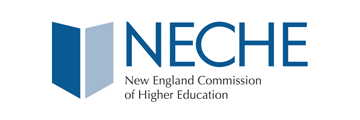
Learn What Keeps the Gears of Business Moving as an Economics/Finance Major
The Bachelor of Science in Economics and Finance at Southern New Hampshire University has a dual mission: to examine the behavior of the economy and its relationship to business and government, and to study the funding and investment needs of corporations, individuals and institutions. The primary goal of the program is to establish a solid foundation in the applied and theoretical areas of international and domestic finance, business and economics. As an economics/finance major, you'll develop the analytical and quantitative skills needed for corporate and individual financial management and economic modeling and forecasting.
See Yourself Succeed as an Economics/Finance Major
The economics/finance major is an undergraduate program that meets the needs of employers in a range of industries. By taking finance courses and studying economics, students develop the skills required for financial analysis, management and economic modeling and forecasting.
As a private, nonprofit university, SNHU has one mission - to help you see yourself succeed. The benefits of majoring in economics/finance at SNHU include:
- Supportive community. Join the SNHU campus community of students who are closely connected with faculty and staff dedicated to your success
- Affordability. It’s our mission to make higher education more accessible. That’s why, SNHU is one of the most affordable private, nonprofit universities in New Hampshire.
- Accessible faculty. Learn from highly credentialed faculty who are experts in their fields and interact with you in the classroom, dining hall, fitness center and the stands
- Opportunity. Tap into our nationwide network of alumni and strong connections with employers for internship and career opportunities
- Campus experience. Enjoy more than 50 student clubs, champion Division II athletics and fun events on our 300-acre campus in Manchester, N.H., named a "Best Place to Live" by Money magazine
Internships & Outcomes
The economics and finance BS prepares graduates for employment in a variety of fields including banking, corporate finance, insurance, personal finance and securities. There are many in-demand careers available for those interested in finance and economics. For example, the U.S. Bureau of Labor Statistics notes employment of financial analysts is projected to grow 12% from 2014 to 2024, faster than the average for all occupations, while employment of personal financial advisors is projected to grow 30% over the same period.
Curriculum
As an economics/finance major, your coursework will cover financial investment and budget strategies and the study of economic behavior. You'll learn to apply theory to the world of international and domestic finance and economics.
Courses To Prepare You For Your Life & Career
SNHU's bachelor's in economics and finance program includes:
- General education
- Business core
- Degree-specific courses
General Education Program
SNHU's required general education program, known as The Commons, aims to guide you toward success in not only your academic career, but your personal and professional life too.
Throughout the curriculum, you'll gain some of the most in-demand skills in today's workplace, including:
- Research and information analysis
- Diverse audience communication
- Critical thinking and ethical problem solving
- Leadership, emotional intelligence and collaboration
This expertise will prove practical, transferable and invaluable as you grow in your career and contribute positively to society.
Beyond foundational skill development, the general education program also provides the benefit of allowing you to explore a wide range of fields outside of your intended major.
Business Core Program
Programs in the School of Business require learners to complete the business core program, which includes a variety of business-specific courses. This program focuses on 10 core competencies to prepare you for success wherever you go.
| View Full Curriculum in the Catalog |
|---|
| BS in Economics & Finance |
| Courses May Include | ||
|---|---|---|
| BS in Economics Finance | ||
| ECO 201 | Microeconomics | This course examines the role of economic systems in allocating scarce resources to satisfy the needs and wants of individual members of a society. After a brief exposure to alternative economic systems, the focus becomes the nature and performance of American capitalism. Primary emphasis is placed upon the development of models that explain the behavior of consumers, producers and resource suppliers in various market structures. |
| ECO 301 | Managerial Economics | This course applies economic theory and quantitative techniques to solving business decision problems. The principal economic framework is that of microeconomics and covers such topics as demand, production, cost and market structures. Regression and linear programming are the main quantitative tools developed in the course. Computer applications are a required part of the course. |
| ECO 306 | Money and Banking | This course covers three broad areas. The first is the banking industry's regulations and internal operations. The second area focuses on the banking industry's role in the national economy, including monetary policy and its macroeconomic effect on prices, employment and growth. International banking is the third area covered and includes an overview of institutional arrangements and the effects of international banking on the world economy. Writing intensive course. |
| ECO 402 | Intermediate Macroeconometrics | This course develops models of short-to-medium-run fluctuations in overall economic activity as well as long-run models of economic growth of a nation. The former category of models includes the Keynesian, New Classical, and New Keynesian frameworks. Particular emphasis will be placed on the New Keynesian model. Empirical testing of the models using computer software will involve the statistical analysis of macroeconomic data. The primary econometric tools for analyzing this data will be regression and its extensions and modern time series analysis. Long-run models of economic growth including the Solow model and the Romer model will also be examined. |
| FIN 330 | Corporate Finance | This course focuses on the topics of corporate finance with the intent to extend and further develop the long-term investment and financing topics introduced in either the Principles or Foundations of Finance. The course addresses issues that face modern corporate managers when making capital budgeting and capital structure decisions, and focuses on applied managerial decision-making. Corporate Finance is designed for students seeking a more thorough understanding of the economic analysis of strategic and tactical investments, the effect financial leverage has on firm value, and the integration of investment and financial corporate strategies. Topics addressed include advanced techniques in capital budgeting, firm valuation, capital structure, firm/division cost of capital, and quantitative risk assessment. Writing intensive course. |
| FIN 340 | Fundamentals of Investments | This course introduces and examines various investment vehicles, including stocks, bonds, mutual funds and commodities. This course emphasizes the decision-making process that underlies all investment decisions. |
| MAT 240 | Applied Statistics | This is a fundamental course in the application of statistics. In this course, students will learn to apply statistical techniques to a variety of applications in business and the social sciences. Students will learn how to solve statistical problems by hand and through the use of computer software. Topics include probability distribution functions, sampling distributions, estimation, hypothesis testing and linear regression. |
| Total Credits: 120 | ||

Campus Undergraduate Tuition
Our Manchester campus aims to keep tuition and related costs low for our students so that you can pursue your degree and your goals.
University Accreditation
Southern New Hampshire University is a private, nonprofit institution accredited by the New England Commission of Higher Education (NECHE) as well as several other accrediting bodies.
This program and its concentrations are accredited by the Accreditation Council for Business Schools and Programs (ACBSP). Student achievement data can be found on the ACBSP accreditation page.


Related Articles

SNHU Spotlight: Keshay Randle, BS in Business Administration Grad

Is a Master’s Degree in Accounting Worth It?


